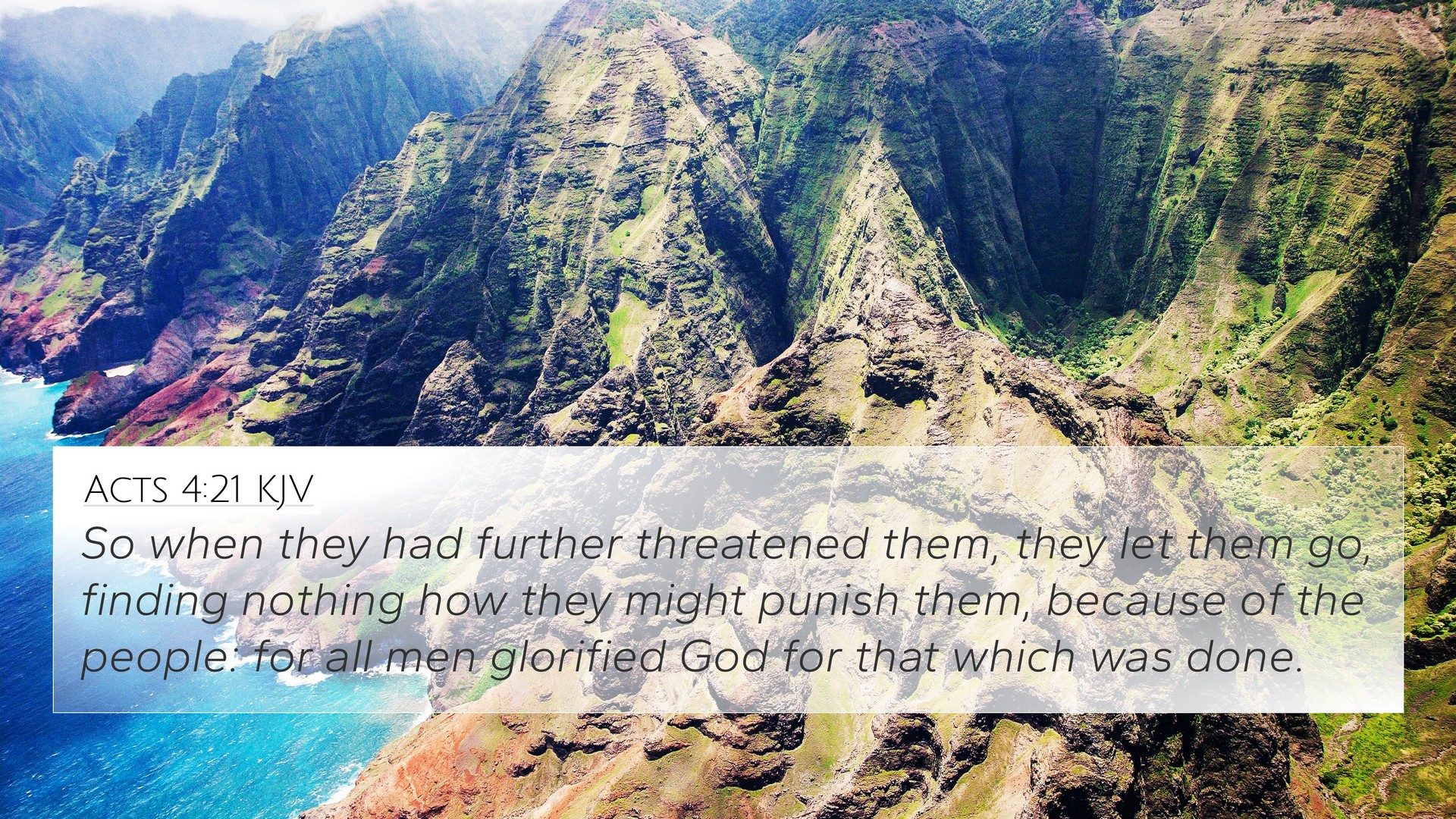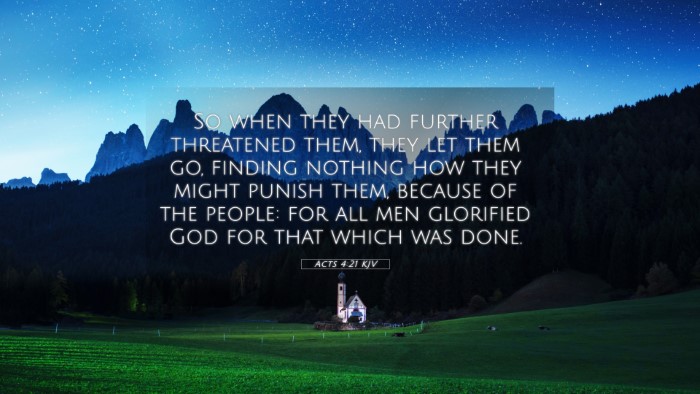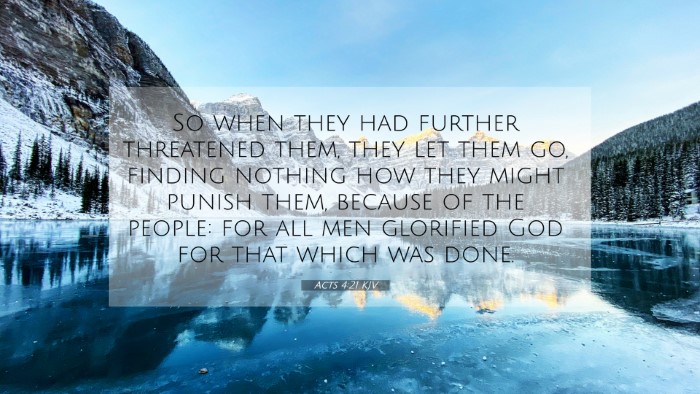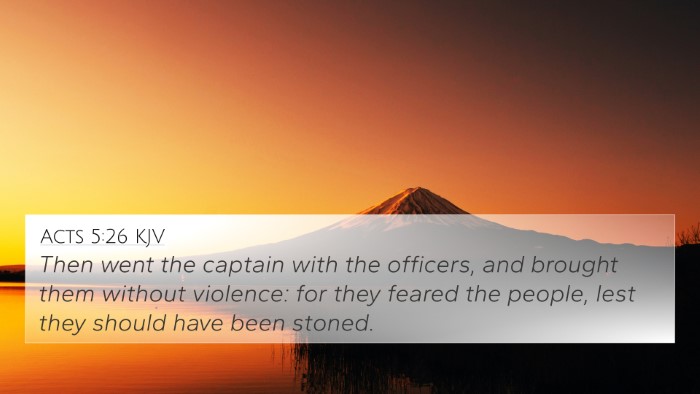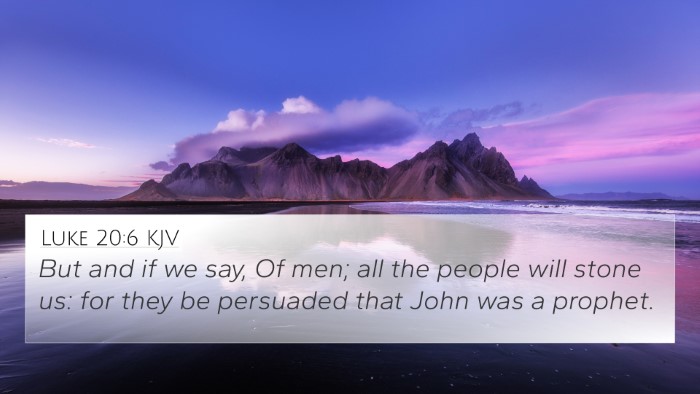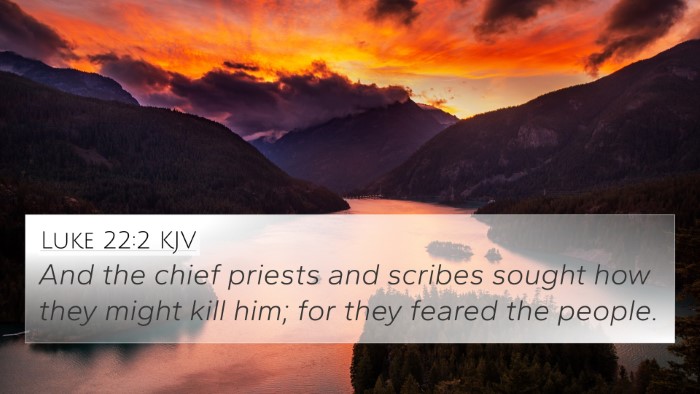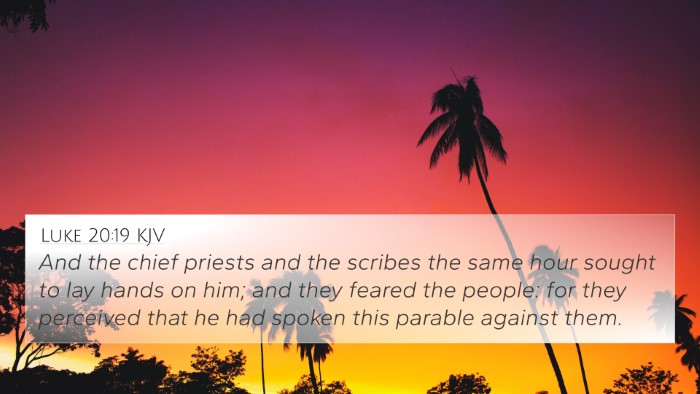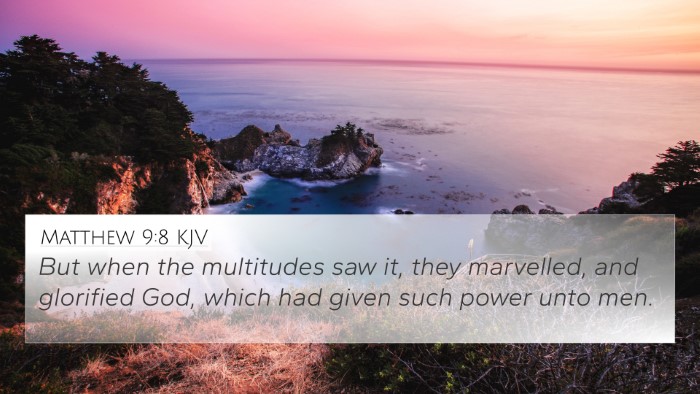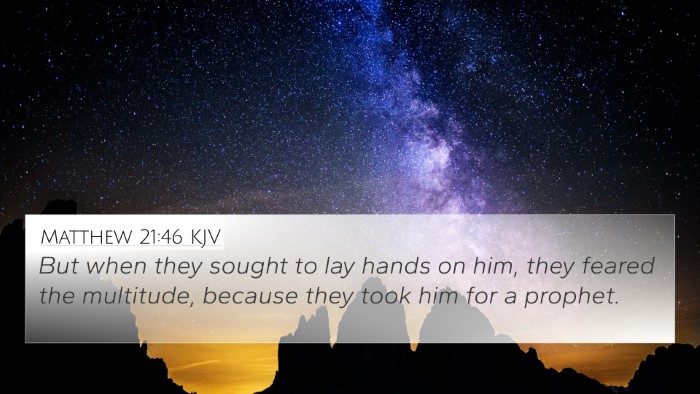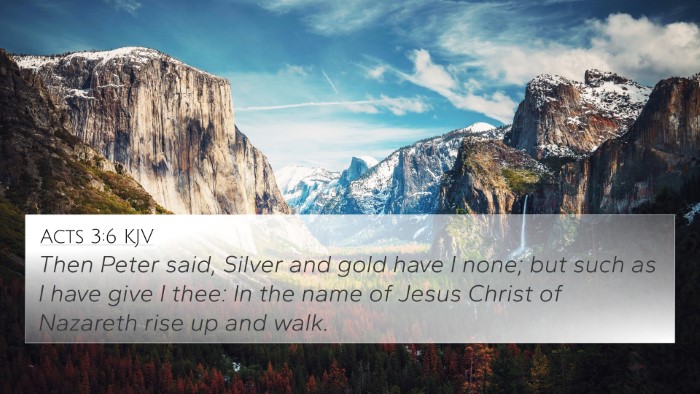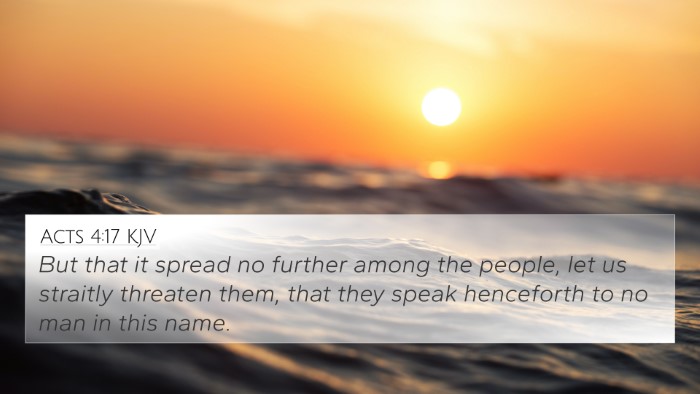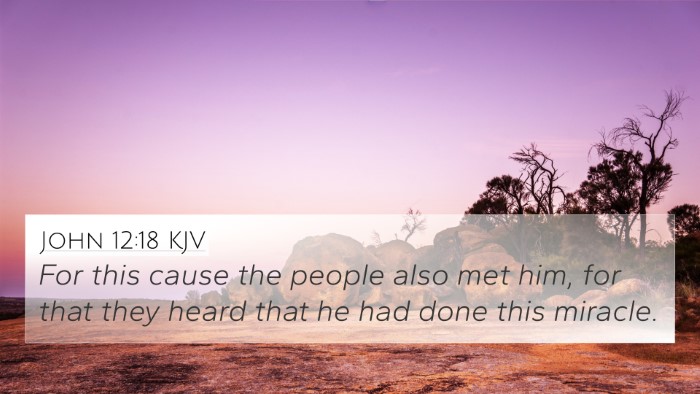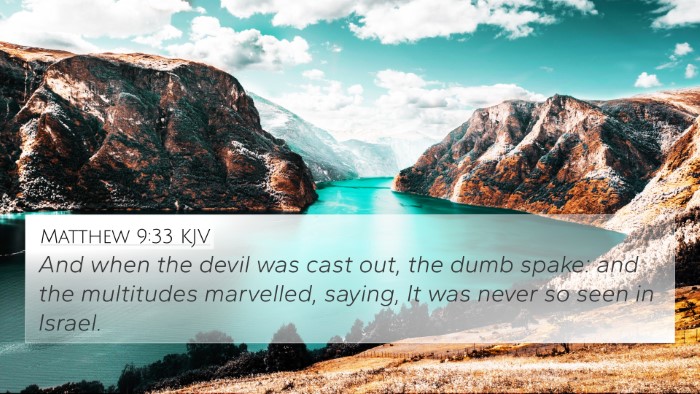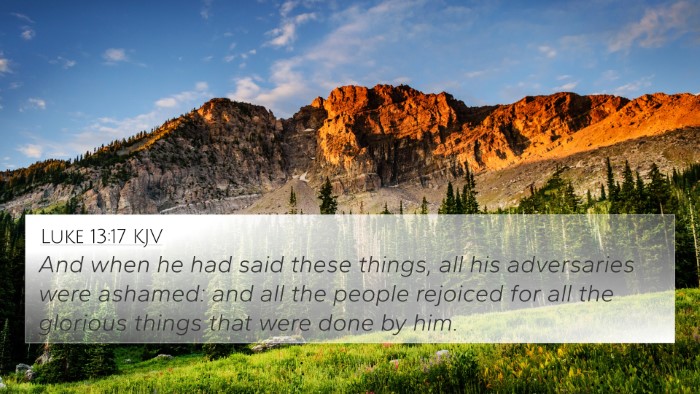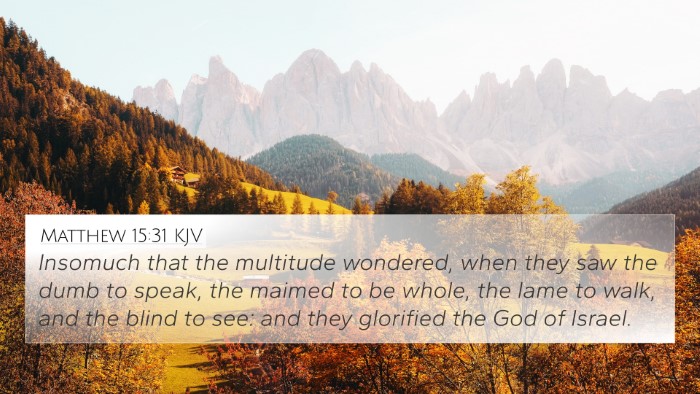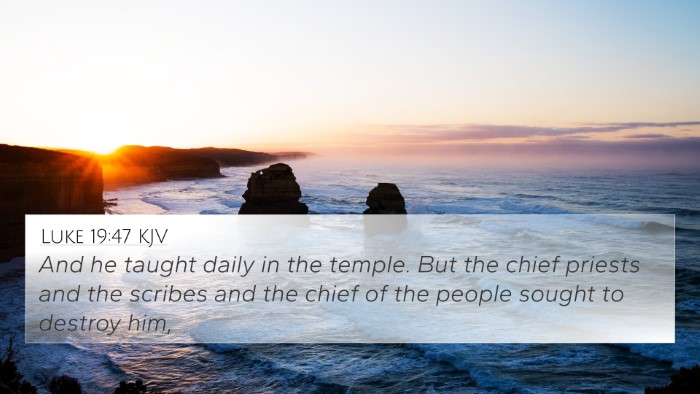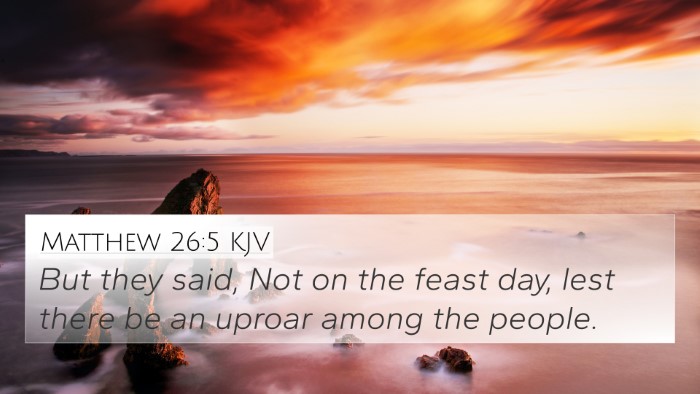Understanding Acts 4:21
Acts 4:21 states: "So when they had further threatened them, they let them go, finding nothing how they might punish them, because of the people: for all men glorified God for that which was done."
This verse captures a crucial moment in the early Church's history, reflecting the tension between the apostles and the Jewish authorities. The insights gleaned from public domain commentaries reveal the layered meanings within this passage.
Key Themes of Acts 4:21
- The Authority of God vs. Human Authority - The religious leaders threatened the apostles to silence them, but the glorification by the people indicated a higher authority at work.
- The Role of Public Opinion - The admiration of the crowd influenced the authorities’ decision not to punish the apostles, demonstrating the power of collective belief.
- The Nature of Miracles - The miraculous healing performed by the apostles led to God's glory being revealed among the people, reinforcing the validation of their ministry.
Commentary Insights
According to Matthew Henry, this verse illustrates that although the apostles faced threats and intimidation, they were ultimately shielded by the reverence the people had for God’s work through them. Their actions not only pointed to the supremacy of divine authority but also created a protective barrier around them due to the public’s support.
Albert Barnes emphasizes that the miraculous events motivated the people to glorify God, showcasing that empirical evidence of God's power can evoke faith among witnesses. The leaders recognized the strength of public sentiment which thwarted their plans for punishment.
Adam Clarke further explains that the authorities’ futility in punishing the disciples highlights the impotence of human power against divine mandates. The use of the term "threatened" signifies the leaders’ use of intimidation, yet the resulting glorification points to the victory of God's message.
Cross-References for Acts 4:21
- Luke 12:4-5 - "And I say unto you my friends, Be not afraid of them that kill the body..." emphasizes fear of God over human threats.
- Matthew 10:28 - "And fear not them which kill the body, but are not able to kill the soul..." relates to the apostles’ boldness.
- Acts 5:29 - "We ought to obey God rather than men," which reiterates commitment to divine law over human threats.
- Matthew 5:11-12 - "Blessed are ye, when men shall revile you..." reflects the blessings that come from persecution in God’s name.
- Romans 8:31 - "If God be for us, who can be against us?" highlights the protection believers have when following God's will.
- 1 Peter 3:13-14 - "And who is he that will harm you, if ye be followers of that which is good?" speaks to the futility of human opposition.
- Acts 4:13 - "Now when they saw the boldness of Peter and John..." connects with their fearless proclamation despite threats.
- John 16:33 - "In the world ye shall have tribulation..." provides context for understanding trials faced by believers.
- Psalm 118:6 - "The Lord is on my side; I will not fear..." reinforces the theme of divine support amid opposition.
- Acts 4:30 - "...by stretching forth thine hand to heal; and that signs and wonders may be done..." connects to the miracles that fueled the people’s belief.
Conclusion: Linking Acts 4:21 with the Broader Biblical Narrative
Acts 4:21 underscores the essential dynamics within the early Church where divine action and human opposition intersect. It invites readers to consider the implications of public faith and God's supremacy. The effects of the apostles' work are a testament to how miracles and public approval converge to validate the Kingdom's message.
By exploring cross-references such as Luke 12:4-5 and Romans 8:31, one can gain deeper insights into divine protection, the ultimate authority of God over human threats, and the communal aspects of faith. These connections enrich our understanding of Acts 4:21 and highlight the significance of interpreting the scriptures in a cohesive, thematic manner.
